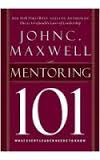They are often called the “Nones.” When asked, “What is your religious preference?” they answer, “None.” This kind of disbelief is the fastest-growing religious trend in America. By some estimates, up to one-third of young people lean this way. Scholars are looking for explanations.
The differences between the older and younger generations are so vast—in everything from religion to social values to morality—that many in the older generations have just given up hope, resigning themselves to the fact that nothing can be done.
One point is clear: Never in American history have the generations been so segregated, which is having an enormous impact on the way that vision and values are being transmitted from generation to generation.
Division by age seems to make practical sense. We typically organize people into groups based on their interests. Consider youth programs, college programs, singles groups, etc. If you can’t agree on music, don’t fight about it, and just separate.
Right? Wrong.
Our solution of segregation has actually made the problem worse. The generations are in silos, and that has destroyed the benefits of living in community and created much uncertainty about the transition of leadership from one generation to the next.
The social philosopher Thomas Sowell says, “Each new generation born is, in effect, an invasion of civilization by little barbarians, who must be civilized before it is too late.”
So what happens when the older generation loses the energy and the younger generation loses the will to preserve the civilization entrusted to them? What happens when the generations, instead of taking their places at the wall, drop their weapons and walk away?
We may feel safe inside those walls for now, but the enemies arrayed against the Beautiful, the Good and the True are powerful. If history is a faithful guide, we know the present shifts in culture will result in epic battles for basic liberties (like freedom of religion and freedom of speech) and an overhaul of the ethical norms that have shaped our nation.
T.S. Eliot wrote a poem called The Rock in 1934 about this very thing:
The endless cycle of idea and action,
Endless invention, endless experiment,
Brings knowledge of motion, but not of stillness;
Knowledge of speech, but not of silence;
Knowledge of words, and ignorance of The Word.
All our knowledge brings us nearer to our ignorance,
All our ignorance brings us nearer to death,
But nearness to death no nearer to God.
Where is the Life we have lost in living?
Where is the wisdom we have lost in knowledge?
Where is the knowledge we have lost in information?
This is what is truly haunting: we thought technology would accelerate wisdom and caring, but what if it actually diminishes it?
It used to be that the rising generation seeking truth and wisdom would look to those who had gone before them. Now they look laterally—to their peers. The herd effect of rallying to a “new opinion” is far more pronounced than in the past.
Technology is an obstacle. But a far more formidable obstacle ispride. Pride in the old and young alike. That age-old enemy of the life well lived. Pride.










